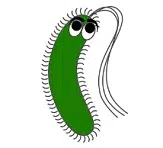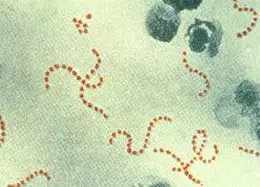 The term germ has different meanings depending on the context . At a general level, it can be said that a germ is that which promotes the origin or beginning of something .
The term germ has different meanings depending on the context . At a general level, it can be said that a germ is that which promotes the origin or beginning of something .
In the case of plants, the part of the seed that allows the development of a new specimen is called a germ. The notion can also refer to the first of the stems that emerge after the germination of the plant.
It is usually considered that the germ of a plant individual is the embryo that is formed after fertilization, which in turn arises from the development of the zygote. This germ goes through a complex process as it develops, culminating in the appearance of the new plant.
A pathogenic microorganism is also called a germ. Microorganisms are microbes: single-celled organisms that can only be seen using a microscope. The adjective pathogen, on the other hand, qualifies that which can cause and trigger a disease (an alteration of health ).
A germ, in this framework, is an agent capable of harming a plant or animal organism (including humans). The living being that hosts the germ is called the host. Once the germ settles in the host, if it finds the conditions it needs to develop, it will end up producing a disease .
Since germs are microscopic, protecting ourselves from them is not easy, because we do not know if they are in our environment. It is important to note that this name is used to designate the following four types of organisms: bacteria, viruses, fungi and protozoa .
Single-celled organisms called bacteria are found naturally in our body; In fact, up to a certain number are beneficial for us, since they collaborate with the correct functioning of the digestive system and block the entry of others, which can harm us. Certain bacteria are used in the pharmaceutical industry to create vaccines and medicines. Two possible attacks from this type of germ are strep throat and urinary tract infection.
Taking into account their size, bacteria are larger than viruses . The latter do not have the capacity to live in isolation, but rather depend on another organism for all their functions, such as their development and reproduction. Almost all viruses can survive for a short time on their own, that is, without being inside a carrier. Some, like hepatitis, survive for several days outside other living cells, and that is why they are so dangerous.
 The reason these germs worry us so much is that they don't take long to reproduce once they enter our body. Although their action is not always very serious, since they cause diseases such as colds , there are also viruses that cause smallpox.
The reason these germs worry us so much is that they don't take long to reproduce once they enter our body. Although their action is not always very serious, since they cause diseases such as colds , there are also viruses that cause smallpox.
Regarding fungi , they are multicellular organisms similar to plants. They generally do not pose a danger to a person in good health. Unlike viruses, they generate their own food. Among the most normal and mild infections that can cause humans are ringworm and athlete's foot; If there is a problem that affects the immune system, such as cancer or AIDS, fungi can attack us much more severely.
Protozoa proliferate in humidity, which is why some of the diseases they cause in humans, such as intestinal infections, are spread through water.
In a broader and even symbolic sense, germ is the beginning of something , whether moral (abstract) or material. For example : "Analysts consider that the germ of fundamentalist terrorism is found in this Arab city" , "The arrival of the Uruguayan striker was the germ of the team's success" , "The government's anti-popular measures constituted the germ of the revolutionary movement" .
